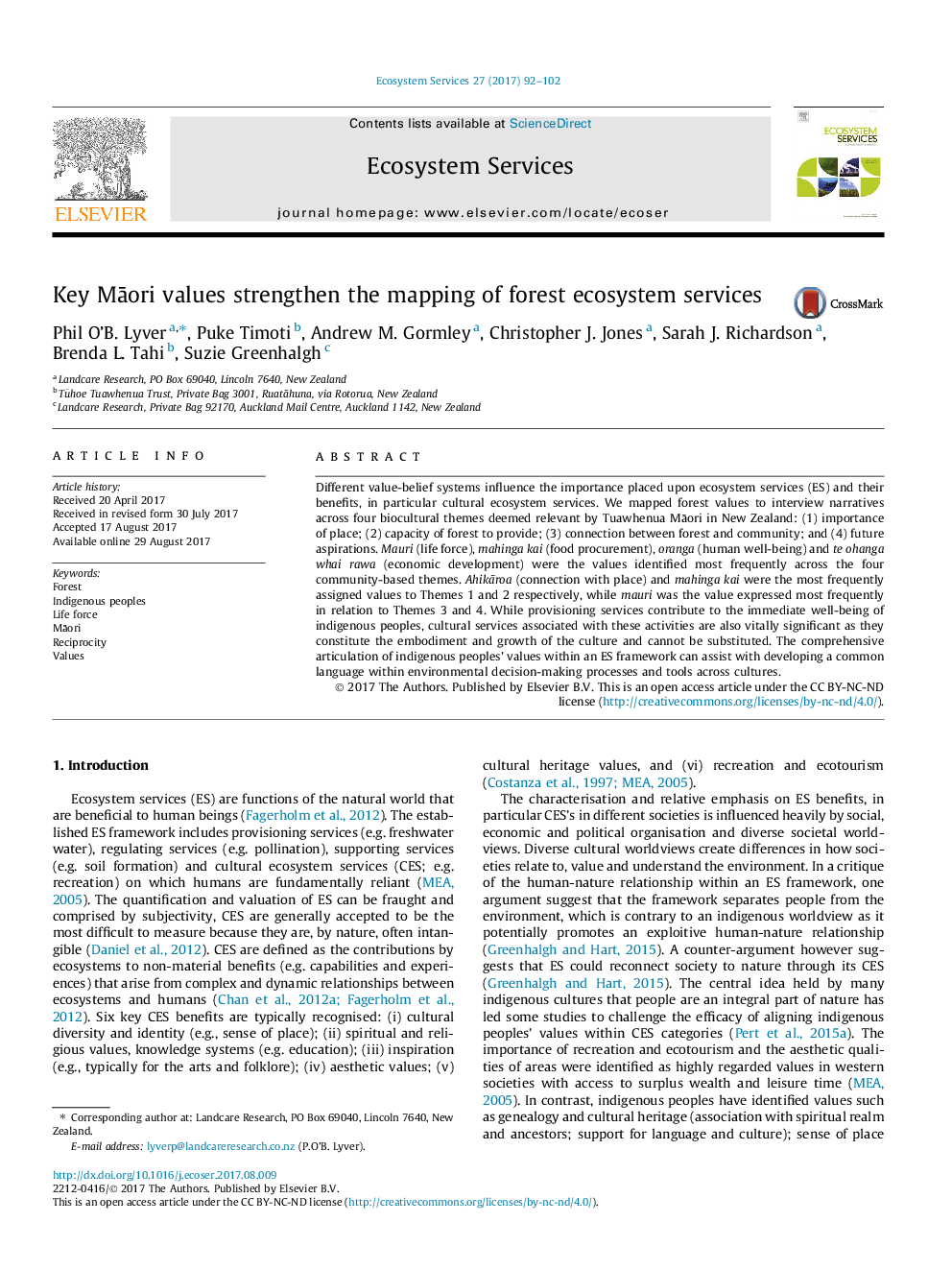| کد مقاله | کد نشریه | سال انتشار | مقاله انگلیسی | نسخه تمام متن |
|---|---|---|---|---|
| 6463471 | 1362117 | 2017 | 11 صفحه PDF | دانلود رایگان |
- Mauri (life force) and mahinga kai (food provisioning) most frequently assigned values.
- Mauri associated with the four primary ecosystem service categories.
- Tuawhenua MÄori forest values mostly represented within cultural ecosystem services.
- Connection to place traded-off against economic development opportunities.
- Substitutability of cultural ecosystem services difficult for indigenous peoples.
Different value-belief systems influence the importance placed upon ecosystem services (ES) and their benefits, in particular cultural ecosystem services. We mapped forest values to interview narratives across four biocultural themes deemed relevant by Tuawhenua MÄori in New Zealand: (1) importance of place; (2) capacity of forest to provide; (3) connection between forest and community; and (4) future aspirations. Mauri (life force), mahinga kai (food procurement), oranga (human well-being) and te ohanga whai rawa (economic development) were the values identified most frequently across the four community-based themes. AhikÄroa (connection with place) and mahinga kai were the most frequently assigned values to Themes 1 and 2 respectively, while mauri was the value expressed most frequently in relation to Themes 3 and 4. While provisioning services contribute to the immediate well-being of indigenous peoples, cultural services associated with these activities are also vitally significant as they constitute the embodiment and growth of the culture and cannot be substituted. The comprehensive articulation of indigenous peoples' values within an ES framework can assist with developing a common language within environmental decision-making processes and tools across cultures.
Journal: Ecosystem Services - Volume 27, Part A, October 2017, Pages 92-102
